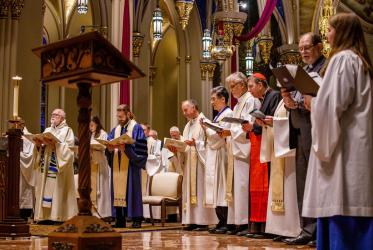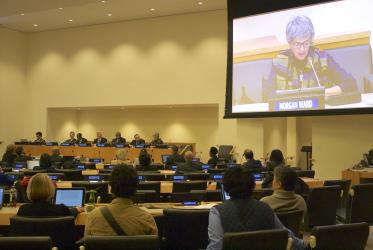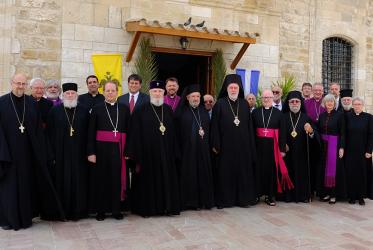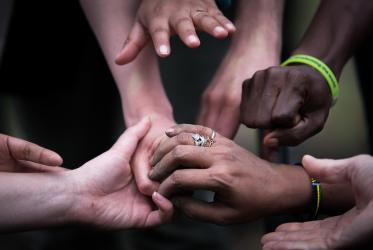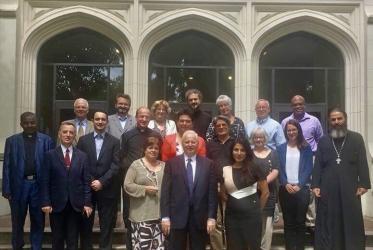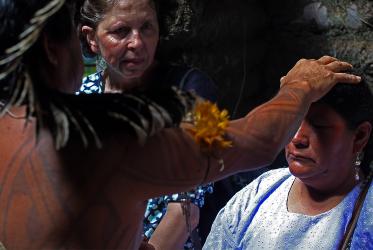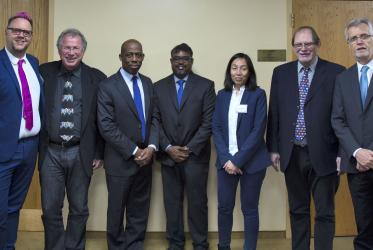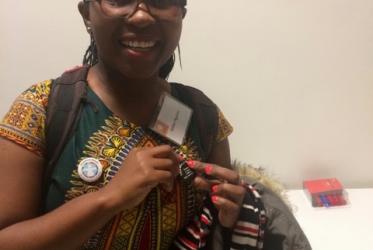Displaying 81 - 100 of 202
Roundtable for Peace on the Korean Peninsula convenes in Atlanta
14 November 2018
Racial justice issues at forefront in meetings with UN experts
01 November 2018
Anglican–Orthodox International Commission releases communique
01 November 2018
Yet another sad anniversary for Christians in war-torn Syria
17 October 2018
WCC mourns passing of Metropolitan Anba Bishoy of Damietta
03 October 2018
"Diversity" documentary reflects on maze of self-identity in Canada
27 September 2018
New economic architecture focus of New York meeting
22 April 2018
Religious organizations speak up on refugee crisis at UN event
29 January 2018
